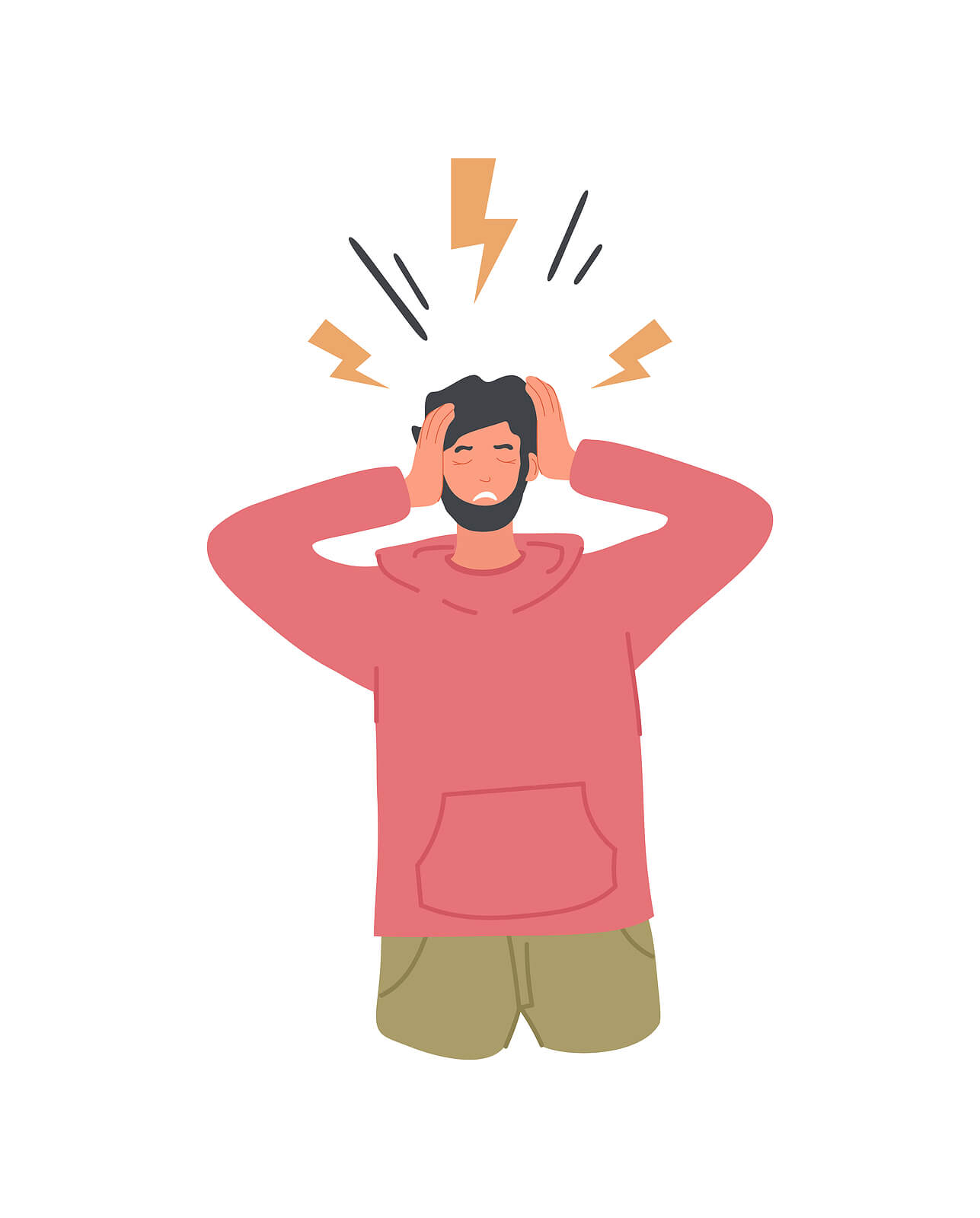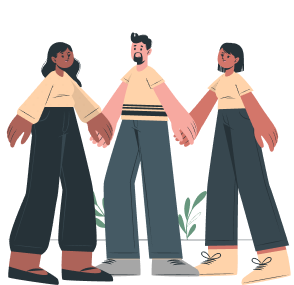(Four Dialectical behavior therapy options to respond to a problem)
Problems always seem to find us no matter where we are and what we do. We can be having a great day, and boom, we get a flat tire, or we get in an argument with a friend, or much worse, we get caught in the rain. I don’t think there is anyone who likes problems, but today, we will walk through four Dialectical Behavior Therapy (DBT) ways to respond to a problem. Even though there are as many different problems as human beings, there are only four ways to respond to any situation, regardless of what the problem is.

Problem-Solving
With any problem, the first step is figuring out if there is a way to change the situation, avoid the situation, or leave the situation. Sometimes we experience unpleasant emotions regarding situations that we cannot change. Problem-solving helps us to collect the facts and take steps to solve a problem for which we can change. Let’s take a look at an example. You feel lonely because you still may need to isolate yourself because of COVID restrictions. Ways to solve loneliness could be video chatting with a friend, calling a family member, joining a virtual club, or reaching out to old and new friends via social media. With problem-solving, you want to list all the possible solutions and pick the one you think is best. If you try it and it doesn’t work, look at your solutions and try another one.
Change Your Emotions To The Situation

The first step to changing your emotions to a problem is identifying the emotion you want to change. If you can’t name the emotion, how can you change it? Next, identify the event or situation that caused the emotion. After identifying the event that caused the emotion you want to check if the problem fits the facts. For a problem to fit the facts of a situation, you need to check the facts. Checking the facts allows you to step back, assess the situation, and determine if what you’re feeling is appropriate given the context.
You want to ask yourself, “Is the way that I am feeling and thinking about a situation factual? Are you assuming or catastrophizing the situation?” Suppose the answer is yes, then it’s time to change your emotions. You can change your emotions by doing the opposite action regarding your emotions. Let’s say you feel anger because you assume your neighbor doesn’t like you. The opposite action would be showering your neighbor with kindness. You could bake them a cake, tell them good morning or even smile at them. By doing those opposite actions, you will notice your emotions shift. The key to doing the opposite action is to continue doing the opposite action repeatedly until you feel your emotions begin to shift.
Radically Accept the Situation.
I bet you’re wondering what radical acceptance means. Most people are aware of acceptance; but radical acceptance means fully accepting our reality and letting go of the bitterness, anger, sadness, shame, or other painful emotions that come with it. Radical means all the way, complete and total. It’s accepting reality with your body, mind, and your heart. There are some things in life that we can’t problem-solve or change our emotions about, no matter what we do, the situation or event it’s not going to change so, we must radically accept it. Rejecting reality turns pain into suffering. Radical acceptance may lead to sadness, but deep calmness usually follows.

Let’s say you experience a great amount of abuse from a loved one, in order to move past it you must radically accept that you have experienced trauma. Radically accepting the experience doesn’t mean you approve of it, or that your feelings toward the trauma are not valid, it just means you are radically accepting that you have experienced the trauma & you can’t go back into history and change the events but, you can work on improving your future and creating a life worth living. The first step toward change is awareness and the second step is acceptance.
Stay Miserable
Yup, you can stay miserable. If you decide you don’t want to use any skills and dwell on the situation, your last option here is staying miserable (which I hope you don’t choose). I hope these four responses to any problem have been helpful. Remember any problem can be responded to, how you respond is up to you. If you’d like to learn more about dialectical behavior therapy skills, consider reaching out to Kind Mind Psychology. We have DBT therapists in New York and North Carolina who would love to help!
Ready to Transform How You Handle Life’s Challenges?
At Kind Mind Psychology, we believe you don’t have to face life’s difficulties alone. Whether you’re looking to improve problem-solving, regulate emotions, or practice radical acceptance, our compassionate DBT therapists in New York and North Carolina are here to help you develop the tools you need. Don’t let problems control you—take the first step toward a more balanced, empowered life.
- Contact us here.
- Learn more DBT skills by exploring our blogs.
- Discover how DBT therapy in Charlotte, NC can help you thrive.
Other Services We Offer in New York and North Carolina
In addition to DBT therapy, we offer group therapy that creates a welcoming space where you can connect with others, share experiences, and feel empowered as part of a supportive community. For those within the LGBTQIA+ community, our LGBTQIA+ therapy is a compassionate and affirming space where you can explore your identity and celebrate who you are. We also offer couples therapy, helping partners strengthen their bond. If you’re seeking to heal from past trauma, our specialized EMDR therapy and Internal Family Systems (IFS) therapy are designed to guide you toward lasting healing and emotional resilience. Whatever you’re facing, we’re here to help you thrive.

